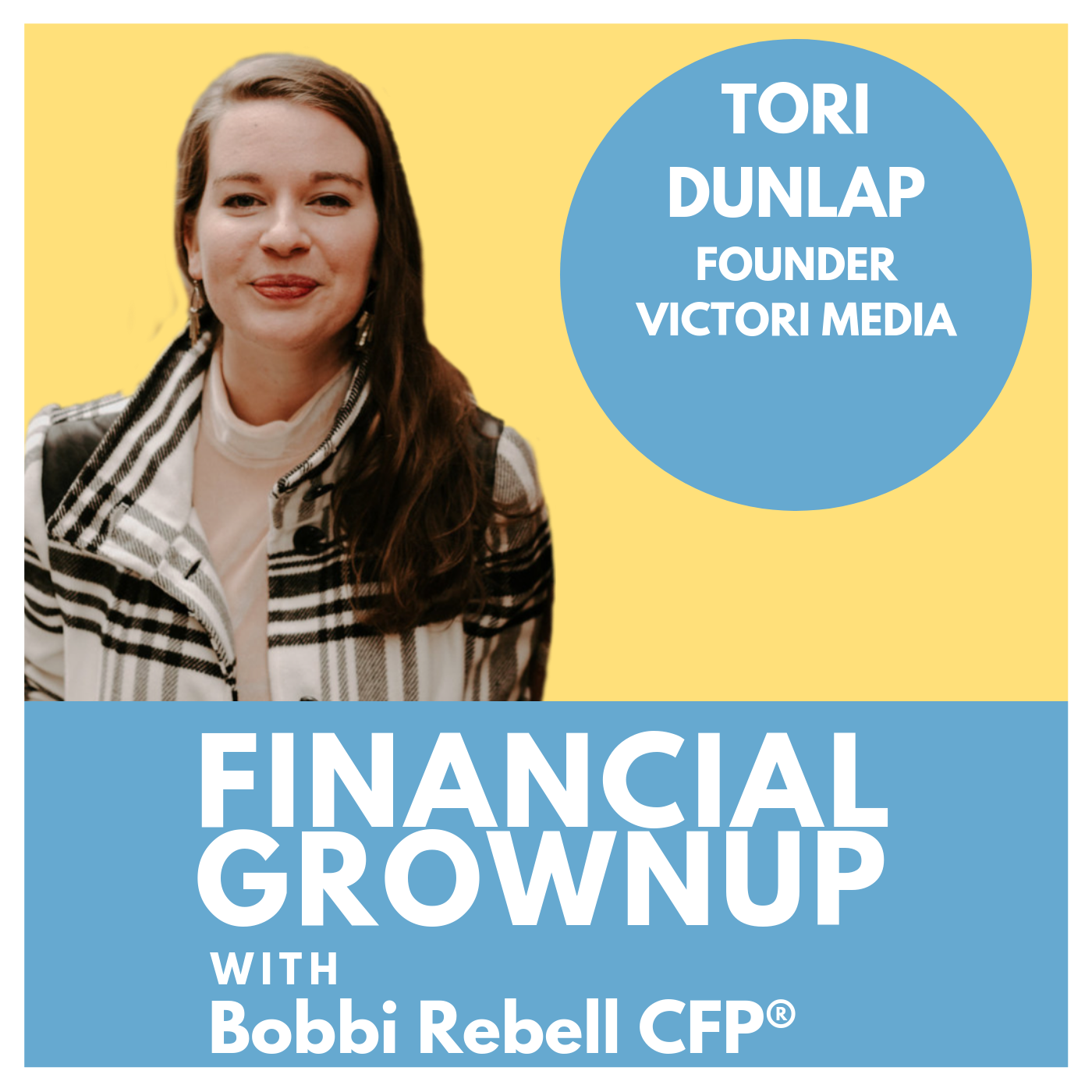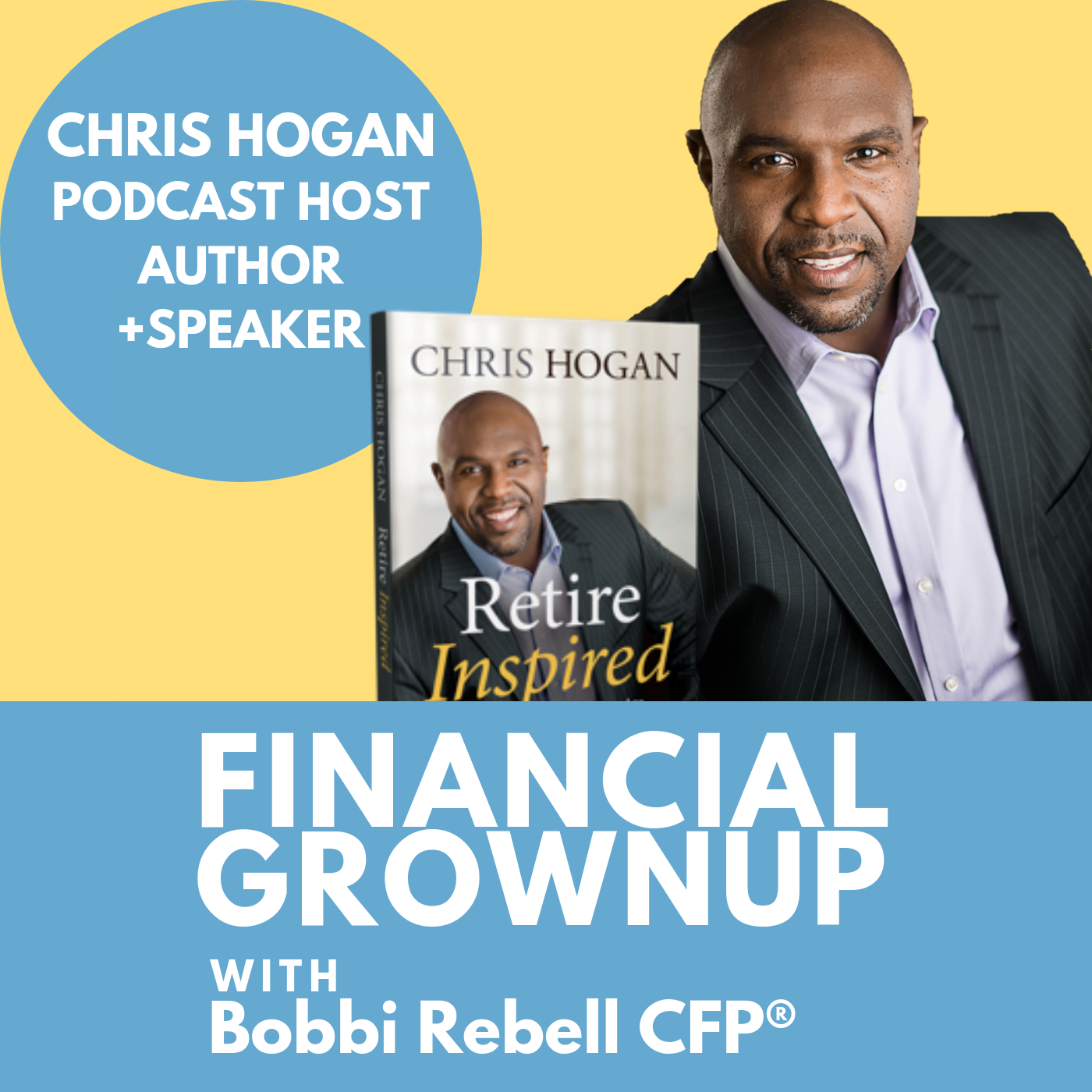Reality TV can be a job- but it often doesn’t pay like one. To film The Bachelorette and later Bachelor in Paradise Derek Peth had to take a break from his paying job in commercial banking. That’s where his emergency fund savings became the star of the show.
Derek's money story:
Bobbi Rebell:
I'm so glad that you're here and so many of your fans are going to be tuning are going to be blown away by what they learn about you, because you're so well known as one of the ... first of all you were on The Bachelor on the JoJo season.
Derek Peth:
Right.
Bobbi Rebell:
You did not apparently live happily ever after with her. But you went on to more success on Bachelor in Paradise season four. And you even now continue a side hustle, which we'll talk about, host a podcast about Bachelor in Paradise and The Bachelor. But we're here because, and this got by the way this announcement of what you're doing now got over 16 thousand likes on Instagram. We're here to talk about what you do for a living right now, which is you are in the financial services sector. You are a Senior Vice President at Laurel Road. So congratulations on this career path as well.
Derek Peth:
Thank you. This is the original career path. Speaking of side hustle, I think that's kind of what The Bachelor became for me.
Bobbi Rebell:
Exactly.
Derek Peth:
Hey, more opportunities.
Bobbi Rebell:
Absolutely. And you're stilling doing that. We're going to circle back to that, but I want to talk about your money story because what you're going to share with us is something that is, on the one hand unique to you and the people that are on reality TV shows, but also very relatable to almost anyone that has ever dreamed of taking a break from their quote, real career, their everyday job. And asking our boss for a sabbatical so that they can do something, maybe a dream, maybe an opportunity for an interesting experience. Maybe financial opportunity down the road. But that's what happened to you. You were working, all of how many years ago? Four years ago maybe?
Derek Peth:
Yeah I think it was about four-ish years ago. I was working in commercial banking as a sales role down in Florida at the time. And actually it's a funny story how it all originally happened because I wasn't ready for it. I didn't signup or anything, I was very focused on my career, and I thought it was a prank call from a radio station at first. I made them email me, and I researched them.
Bobbi Rebell:
Wait. How did they find you? I just assumed people apply to be on these shows. You just get this call.
Derek Peth:
I know. My sister signed me up.
Bobbi Rebell:
Oh my gosh.
Derek Peth:
I didn't figure it out until three weeks later when finally I ... because I had been kind of quiet about it and then finally I was like, "Hey did you happen to sign me up for The Bachelor ever?" And boom. There we go.
Bobbi Rebell:
She didn't tell you? Oh my gosh.
Derek Peth:
No. Her friends watch the show and it was like they all got around the computer and sent my photos and information in. But when I started thinking about this, it was like this is one of those opportunities that are once in a lifetime that can change the course of your life completely. And luckily, my mom has put self-help books in front of me my whole life, and I've been very, always interested in making sure that things were setup so that ... I ran some marketing businesses on the side when I was younger. I had a nice foundation of rental income incoming constantly that put me in a situation where I was like, "You know what? I don't necessarily need to have this job." While I enjoy what I'm doing, and I have a great relationship with my boss at the time. He really tried and he was like, "Listen, you're a sales role."
Bobbi Rebell:
Well what happened? Can you go in and say, "Hey I'm going to be on a reality TV show can I have a sabbatical of I don't know how long?" How does it work?
Derek Peth:
Exactly. I called him up. I said, "Hey I really need to have a side conversation that needs to be pretty quiet because there's some legal matters." And he was freaked out so he called me right away. But the legal matter was that I couldn't really discuss what the situation was with a bunch of people. And I just said, "I don't know. It could be one week that I'm gone, it could be eight weeks, 10 weeks." That's how long they tape for, and you have no idea going in. He went back and he reached out to HR and they tried to figure something out, but in the end, the response was basically, "This is a little too much of an ask right now, Derek. The only option is, if you want to do this you have to leave and quit, or you can keep working here. And call us back afterwards." The truth is, there's no chance on us just putting and eight week paused on your role.
Derek Peth:
Like you said, I saw it as a sabbatical of sorts, because there was that open end coming back, which I built from working by butt off in my job. And I built that foundation that I could really use to support my living without a normal income by working my butt off on the side. And again, I think there's a lesson there that really gives you the opportunity to do some unique and different things sometimes in life that we all dream and talk about, but when you're forcing yourself into the bare minimums, that's where I think, like I said, luckily I've had some of that literature in front of me my whole life and it was just pounded in my head, "Make sure you have enough income to live for a full year with what you're doing."
Bobbi Rebell:
You had a full year of income saved?
Derek Peth:
I did.
Bobbi Rebell:
How do people support themselves on these shows? Do you get paid to be on, do you get paid more if you last longer on the show? How does it work?
Derek Peth:
Some of those work that way. The actual Bachelor, Bachelorette, the first one there's no income from it, but the second show that I did that you talked about, it works that way where it's a per day payment situation. And so, it depends on what show you're talking about. Obviously, as we both know, the Instagram ad game has become I think the goal for a lot of people after that. And that's where the supporting themselves, and being a public figure offers some cool opportunities to do some travel where, if you're going and doing speaking somewhere or just doing an event anywhere, a lot of times there's free travel or the event itself, I should say, takes care of the travel and the accommodations. It is a unique situation. It's a little bit different than having to jump on Spirit because you're flying all over the place.
Bobbi Rebell:
But people going on these shows are not necessarily paid. There are costs involved, and you often lose your income. I don't know that people really understand that.
Derek Peth:
Yes. And that's why a lot of the people end up on the show, I think, are entrepreneurs. When you really think about it, there's business people and some small business owners a lot of the time, and it's because they have the flexibility to do that, they don't have this fear of having to jump of a cliff with their job, because it's scary thing. Not to mention just the nature of the United States these days. I don't know the exact numbers, but the cost of college has quadrupled or more in the last few years, and when you really look at that and compare that to what you come away with, and what you need, we have to have that income in order to just survive, right? Just the environment itself has made it so hard for people to jump out and do anything unique like this without cutting away, and living at home, and dodging their student loans.
Derek’s money lesson:
I think that rule is so important for people to live by. Instead of focusing on how do I get to the next paycheck, you got to focus on a rule, a separate goal. And that maybe 5% of their income for some people, 10% of their income. That's a conversation, especially if there's relationships, there's other situations that come in, but instead of maxing out what you're making, there needs to be savings goal and then a long-term goal of course. One of my favorite sayings is, how do you eat the elephant? One bite at a time. You have your big goal, but then one little step at a time, each month, each week, you're saving that money away, and that's how you, I think, create that foundation to give you the opportunity to go and do some different things.
Bobbi Rebell:
And also because as much as these kinds of ventures can create opportunity, at the end of the day, you're not an actor.
Derek Peth:
Right.
Bobbi Rebell:
You have a normal life to some degree. It will never be quite as normal again, and you're still doing a lot of Bachelor related things, but you have an actual job.
Derek Peth:
There's a few very successful individuals. No different than professional sports. Honestly every aspect of business and any job in and of itself has high performers, and medium as well. But a lot of people in that quote, medium performance, which of course relates to how many Instagram followers you have now. But they really butt their head up against the wall and get sucked into this life with these hopes and aspirations without the understanding that it does take the work no different than your job to do some hustling, to make connections, to call people, to set things up for yourself. They do the bare minimum, and sometimes that's nice for a little while, but I mean, I think the people who have been very successful with taking this opportunity that The Bachelor presents you with and have treated it like a job. You see some of those folks who previously had jobs.
Derek Peth:
I have a great example from my season. Wells, great example. They were high performers in what they were doing already. And they pivoted everything into, all right, this is my new side gig. I can just take the same lesson I learned from working hard and taking care of business in my day-to-day life and apply it to this new opportunity.
Derek's everyday money tip:
My money tip, especially for millennials like myself is, first and foremost, within the marketplace we're in, there's an urgency to refinance your student loans. We ourselves we save over $20 thousand, on average, for people who refinance their loans, when you look at the life of their loans. I think knowing your rate in the first place is a great place to start. A lot of people, a lot of my friends even when I started working at Laurel Road they didn't even know what their rate was. And I started talking to them about the opportunities and they were just mind-blown at how much they could save each year.
I don't mean that facetiously. They were shooting, kicking themselves saying, "Hey, I'm an idiot. I haven't been looking at this. I didn't even know that. Here I am complaining about my income, and I could have saved it just by going online, doing a little bit of research." And to all those millennials out there, or anyone else who's recently gone through school and still has those student loans, go refinance them. There's no cost. It's very quick. I'm going to say, go check out Laurel Road's website because we are, I think, the best at this, but across the board, that's the number one thing we need to be doing.
Financial grownup tip number one:
Emergency funds aren't just for when bad things happen. In this case, a really amazing thing happened, a once in a lifetime opportunity. Literally life-changing experiences, and Derek had the financial resources available to cover up to a year. So when he was on The Bachelorette, not a lot of financial stress. And then even more fun on Bachelor in Paradise. And by the way, did I mention he hosts The Bachelor podcast, which is strangely addicting, even though I don't even know all the people that Derek, and Kay his co-host, are talking about. Don't be judgey. Derek has had a great ride. And I'm not saying that I know anything, or that Derek told me any upcoming projects, maybe when we kept talking after we stopped taping. But you want to stay tuned to what Derek is up to. Follow him on all the socials, and keep tabs on him at Laurel Road.
Financial grownup tip number two:
I joked with Derek about being judgey. We can all get judgey, myself included, about productivity, and joke that if we spend all day watching Netflix, or whatever, on Instagram, on our social media channels, we're not going to be building our businesses, our personal brand empires or whatever our goals are. So yes, we have to be mindful of our time. Go listen to the Laura Vanderkam episode for tips on that, by the way. But you know what, I really enjoyed Derek and his cohost on The Bachelor podcast. And the Bachelor shows are really fund. If that's your thing, enjoy it. Like all indulgences, chocolate, try to keep it under control. Maybe do a Bachelor in Paradise marathon over the holidays with your friends, get it out of your system for a little bit, then be more productive in the new year. Enjoy it. Don't feel bad. It's all good. And then of course, come back and listen to all the good advice here on Financial Grownup to get your finances in order for the new year.
Episode Links:
Derek’s website - Laurel Road
The Betchelor podcast
The Bachelor
The Bachelorette
Follow Derek!
Want to learn more about productivity? Click Here to listen to our episode with "Off the Clock" Author @LauraVanderkam
Some of the links in this post are affiliate links. This means if you click on the link and purchase the item, I will receive an affiliate commission at no extra cost to you. All opinions remain my own.













































